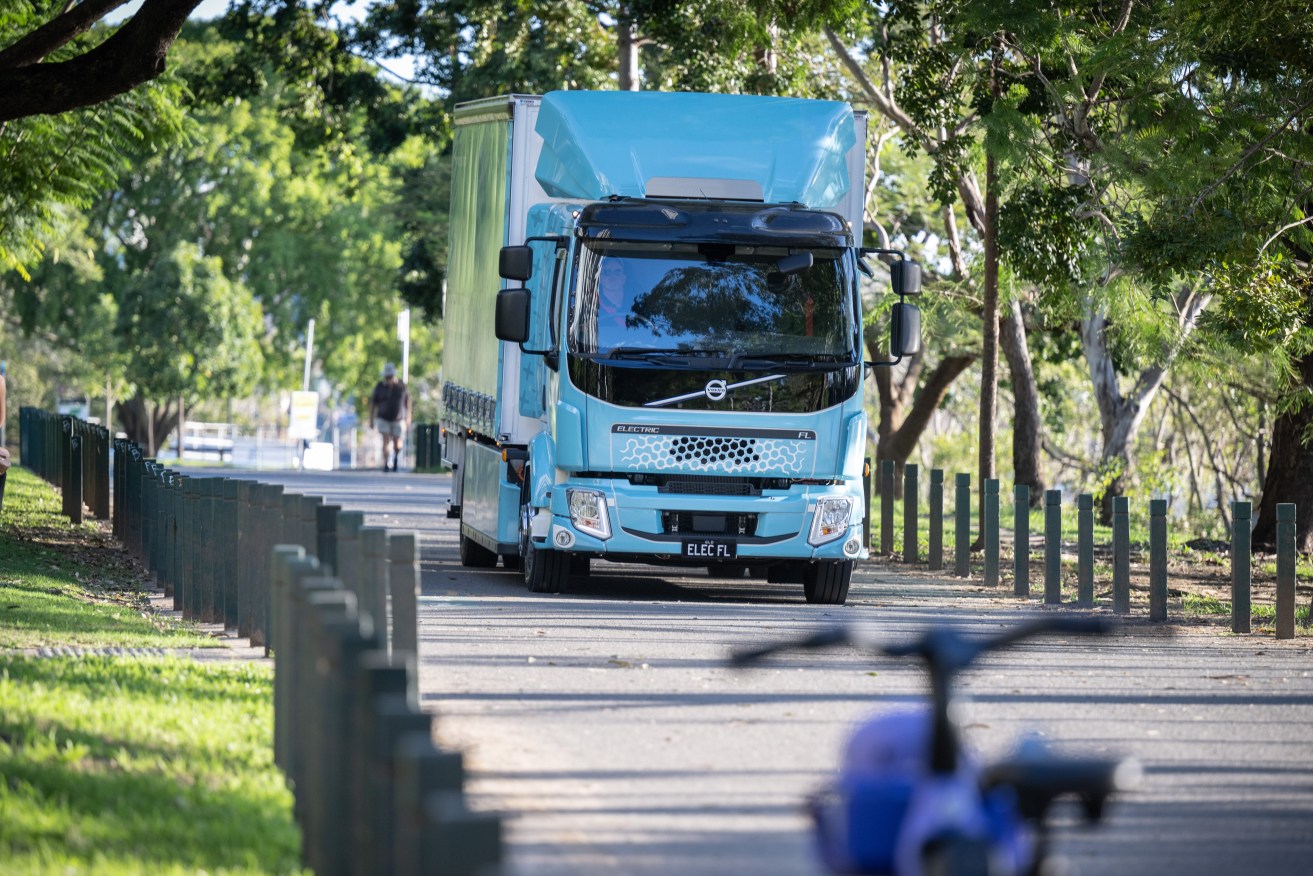Price is right: Electric trucks to cost no more than diesel by 2030
Eco-friendly, electric delivery trucks will cost the same as their diesel equivalents by 2030, according to latest analysis, and investing in fleets of electric cars could already save money for some companies.

Electric trucks will cost no more than their diesel equivalents by 2030, experts have revealed. (AAP Image/Supplied by Volvo)
But the study, from management consultancy Partners in Performance, found commercial vans could take an extra two years to reach price parity with internal combustion engine vehicles and the path was not as clear for large, freight trucks in Australia.
The study came one day after the Electric Vehicle Council released a report warning a lack of action by federal and state governments was holding back sales of the largest electric vehicles, with many trucks unable to be imported into the country because of weight and size restrictions.
Partners in Performance director Brian Innes told AAP more Australian companies were investigating investments in electric vehicles, small and large, to ascertain the best time to upgrade their fleets.
“We are seeing some of the major fleet owners commit to full electrification by 2030,” Mr Innes said.
“In mid-range trucks there are a lot of options and companies are just trying to work through exactly what impact they will have operationally.”
Fringe benefits tax cuts on electric vehicles, introduced last November, meant some smaller electric vehicles were already cheaper than petrol equivalents for eligible businesses, he said, but larger battery-powered vehicles would take longer to reach equal pricing.
The company’s cost analysis found light rigid trucks, typically used for grocery and furniture deliveries, would reach price parity with diesel vehicles before 2030 and commercial vans and utes would hit the milestone between 2031 and 2032.
Businesses that bought electric trucks now and used them for at least 10 years could get a return on investment, however, in lower fuel and maintenance costs.
Mr Innes said the path was not as clear for large electric trucks such as those used to move freight in Europe and the United States because most were too wide or carried too much front axle weight to be allowed under Australian Design Rules.
“The question mark isn’t so much about the technology; the question mark is over the regulations,” he said.
Australian laws allow trucks to carry a maximum of 6.5 tonnes on their front axle and be up to 2.5 metres wide – restrictions which do not allow vehicles such as Volvo’s EH Electric truck on local roads.
The EV Council’s latest State of Electric Vehicles report, released on Monday, found 12 electric truck models were being sold in Australia but many were not allowed to be driven in the country.
It recommended state and territory governments advocate for changes.
“The Australian electric truck market is being held back by a lack of action by the Australian government in expediting the relaxation of mass and width limit restrictions on these vehicles,” the report said.












